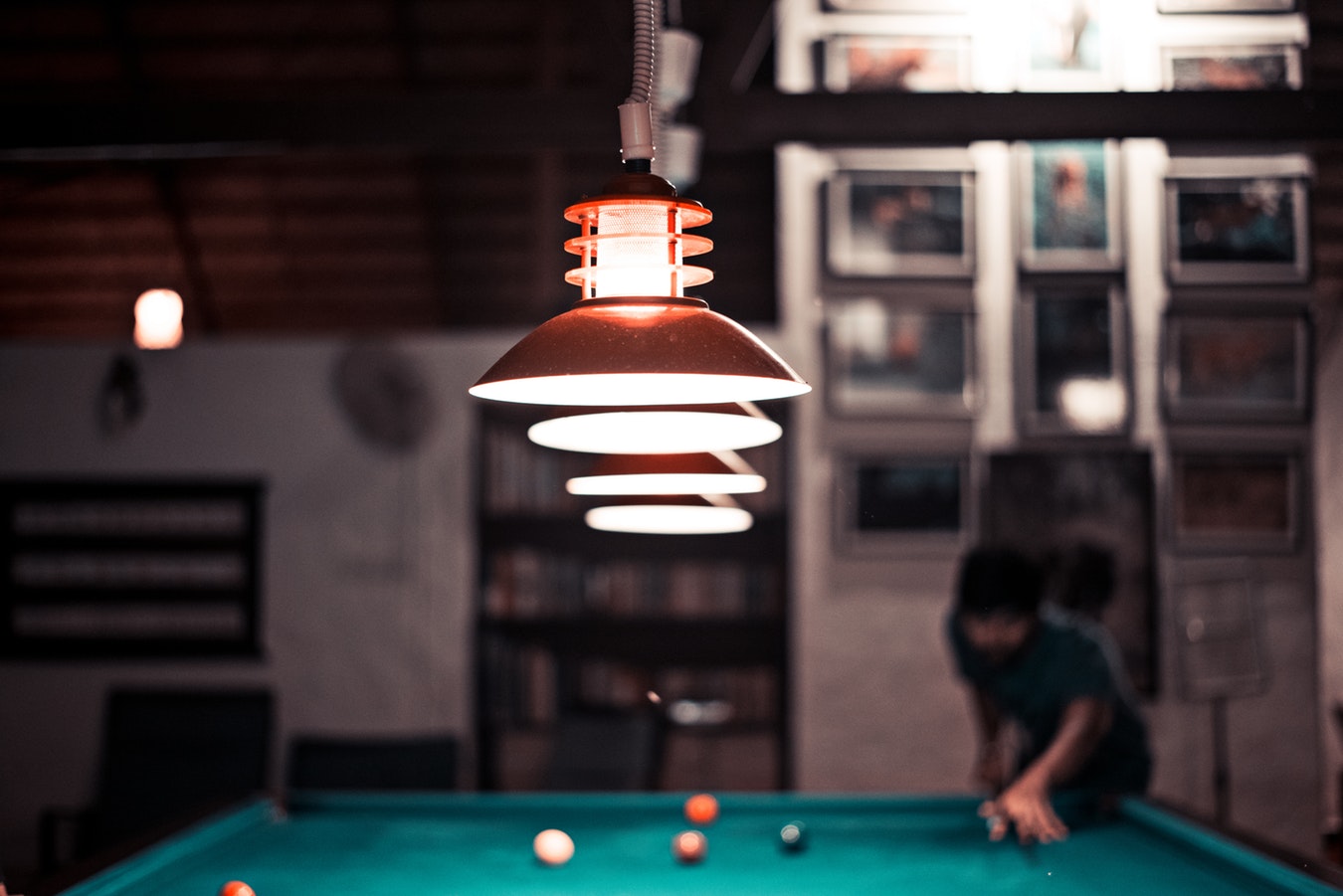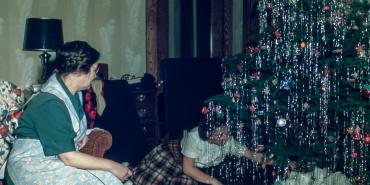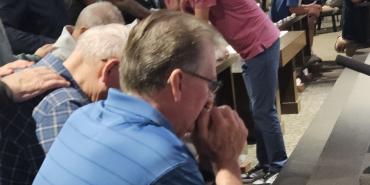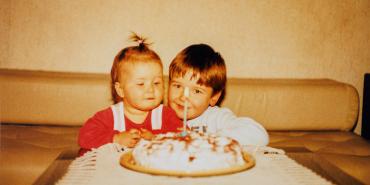Finding Grace in the Pool Room

Pristine, orderly Germany and homelessness don't usually merge in the same image. Yet, in the southern outskirts of Berlin, along a quiet village road just yards from where a wall once severed East from West, lies ICHTHYS, an unusual Nazarene Compassionate Ministry, a center for homeless men and women.
Its name is unusual, an acronym comprised by the Greek letters that spell out "Fish," the coded symbol of the early Christians. The letters of the acronym represent the Greek words translated "Jesus (I) Christ (CH), God's (TH) Son (Y), Savior (S)." Is it just an accident or a symbol that the pond in the front lawn is filled with goldfish?
ICHTHYS was once the barracks of the communist East German soldiers who guarded the Berlin Wall. When Nazarenes acquired the property, they discovered a plaque reading: "If I take the wings of the morning, and dwell in the uttermost parts of the sea; even there thy hand shall lead me, and thy right hand shall hold me" (Psalm 139:9-10, KJV). God's grace does extend to the darkest places.
For 12 years, ICHTHYS has served more than 800 patrons.
At first the local community was suspicious of this new enterprise. But now they're proud as ICHTHYS contributes to the aesthetic character of the neighborhood. Its prim property is the model of ecological tidiness with trim gardens and a two-story residential facility that houses forty men and women.
The directors, Norbert and Katrin Dennewill, are extraordinary testimonies of grace. Norbert, bespeckled with tattoos, spent six years in jail. He made a deal with God that he would attend a Christian film night at the local Nazarene church if mercy was granted at his parole hearing. When this happened, he attended the church and met his wife-to-be, Katrin, who is now the medical doctor at ICHTHYS.
Norbert proudly showed me his pool room, perched on the top floor. Not just any pool room, this was a museum, cluttered with memorabilia of a changed life. I was particularly drawn towards a glass cabinet where five revolvers recalled the drama of burglaries and violence that dominated Norbert's early life. On one shelf lay a two-inch nail and a punctured Bible. Shortly after Norbert's conversion, he had felt the demands of the Bible were so severe that he nailed the pages of the Bible to the ground, determined never to open it up again. Later, he pried loose that nail. On another shelf, an old whiskey bottle testified to the last alcohol Norbert drank. It is now filled with sand from the Omaruru River in Namibia where, as a child, he almost drowned while escaping his home. Elsewhere are other artifacts—a butterfly knife, handcuffs, drug pipe, death mask, preserved rattlesnake, and a piece of the Berlin Wall—symbols of the broken bondages of Norbert's life.
His pool room was not just entertainment for the shelter patrons, but was also a window into Norbert's soul.
Each artifact spoke of grace—a point of remembrance and thanksgiving along his tortuous journey. The room was his holy of holies, and the artifacts, his version of the ark of the covenant. Like the sprig on Moses' staff, the Decalogue, and the manna, these items symbolized God's leadership, law, and provisions, and shouted their message of redemption to visitors. A plaque on the wall states: "This pool room is dedicated to the glory of God, in order to show how God uses lost and useless people and turns them into wonderful and valuable gems."
Norbert's pool room is "Exhibit A" to the troubled patrons of ICHTHYS who, in that room, find relief and hope.
Fletcher L. Tink is an urban missions specialist who has conducted urban and leadership training in 25 nations.
Holiness Today, January/February 2007
Please note: This article was originally published in 2007. All facts, figures, and titles were accurate to the best of our knowledge at that time but may have since changed.




